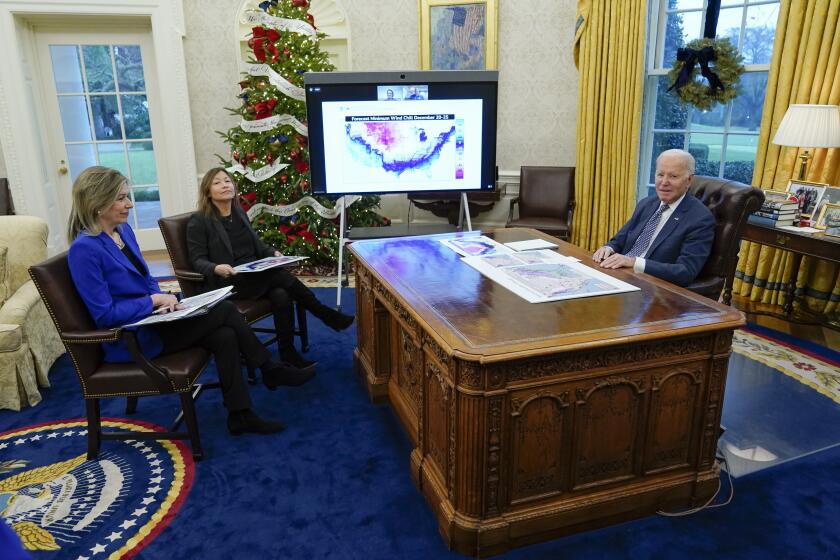It’s Indefensible to Deny Veterans Legal Counsel in Hearings Before the VA
Passage of legislation elevating the Veteran’s Administration to the President’s Cabinet is a virtual certainty now that Sen. John Glenn (D-Ohio) has agreed not to attach a rider that would have provided for judicial review of veterans’ claims. The White House indicated that it would veto the entire bill if such a provision were included.
While Congress and the White House engage in what is largely a symbolic gesture of support for veterans, the VA claims process continues to deny veterans two fundamental rights of the American adjudication system: a day in court and the right to an attorney.
Supporters of the existing VA adjudication system contend that judicial review and attorney representation would interject an unnecessary adversarial element into a process that is paternalistic and would undermine the informality of the system. If the VA is indeed a paternalistic government agency, it is often an unjust and unfair father.
VA policy is an amalgam of regulations, circulars and memorandums. A claimant has great difficulty navigating this labyrinth of procedural obstacles. Furthermore, VA officials are evaluated on the basis of productivity; consequently, they have an incentive to process a claim quickly, even if it is complex and warrants greater examination.
The deficiencies in the process are compounded by the VA rule that an attorney representing a veteran in an adjudication procedure cannot be paid more than $10. This in effect precludes representation by counsel. Most veterans are represented by service officers provided free-of-charge by veterans’ organizations. Service officers are almost always non-attorneys and their accreditation depends mainly on a showing of good character. An attorney is not always needed, but veterans should have access to attorneys when they really do need them.
Supporters of the current VA system often point to the problems of the Social Security Administration disability-benefits program, which has judicial review and attorney representation. In particular, they note the adversarial nature of the system and the burden imposed on the judiciary by claims. However, the Social Security Administation is not a perfect model for assessing the potential impact of judicial review and attorney representation on the VA claims process. For example, Social Security follows a policy that forces claimants to appeal to the courts, even if the controlling court of appeals has already reviewed claims of a similar nature. This unnecessarily inflates the burden on the judiciary.
A better model is provided by the boards for correction of military records, which are found in each branch of service. Among other matters, they review military retirement disability claims, which are similar in nature to the disability-benefits claims examined by the VA. A veteran may receive either military retirement disability benefits or VA disability benefits, but not both.
In contrast to the Social Security Administration, where 20% of the final adverse determinations are appealed to federal courts, only 2% of the military review decisions are brought to court. Attorneys and service officers work side-by-side in the latter process. Attorneys have a higher success rate than do service officers, demonstrating that the adversarial element introduced by the presence of attorneys has not been to the detriment of veterans.
In light of the preclusion of judicial review and the $10 attorney’s fee limit, one might conclude that the VA is never in court and that the VA adjudication process is free of lawyers. This is a myth. In 1984 and 1985 the VA instituted more than 100,000 actions in federal district court to recoup overpayments of veterans’ benefits, which is more than twice the number of Social Security disability-benefits claims brought to court. When the VA errs in favor of the veteran, the government has access to the courts; when the VA errs against the veteran, the doors to the courthouse are barred.
These basic safeguards of judicial review and access to legal counsel are provided in adjudications for other government benefits and would go far toward fulfilling the pledge made by Abraham Lincoln, which has since become the motto of the VA: “(T)o care for him who shall have borne the battle and for his widow and his orphan.”
More to Read
Get the L.A. Times Politics newsletter
Deeply reported insights into legislation, politics and policy from Sacramento, Washington and beyond. In your inbox three times per week.
You may occasionally receive promotional content from the Los Angeles Times.









